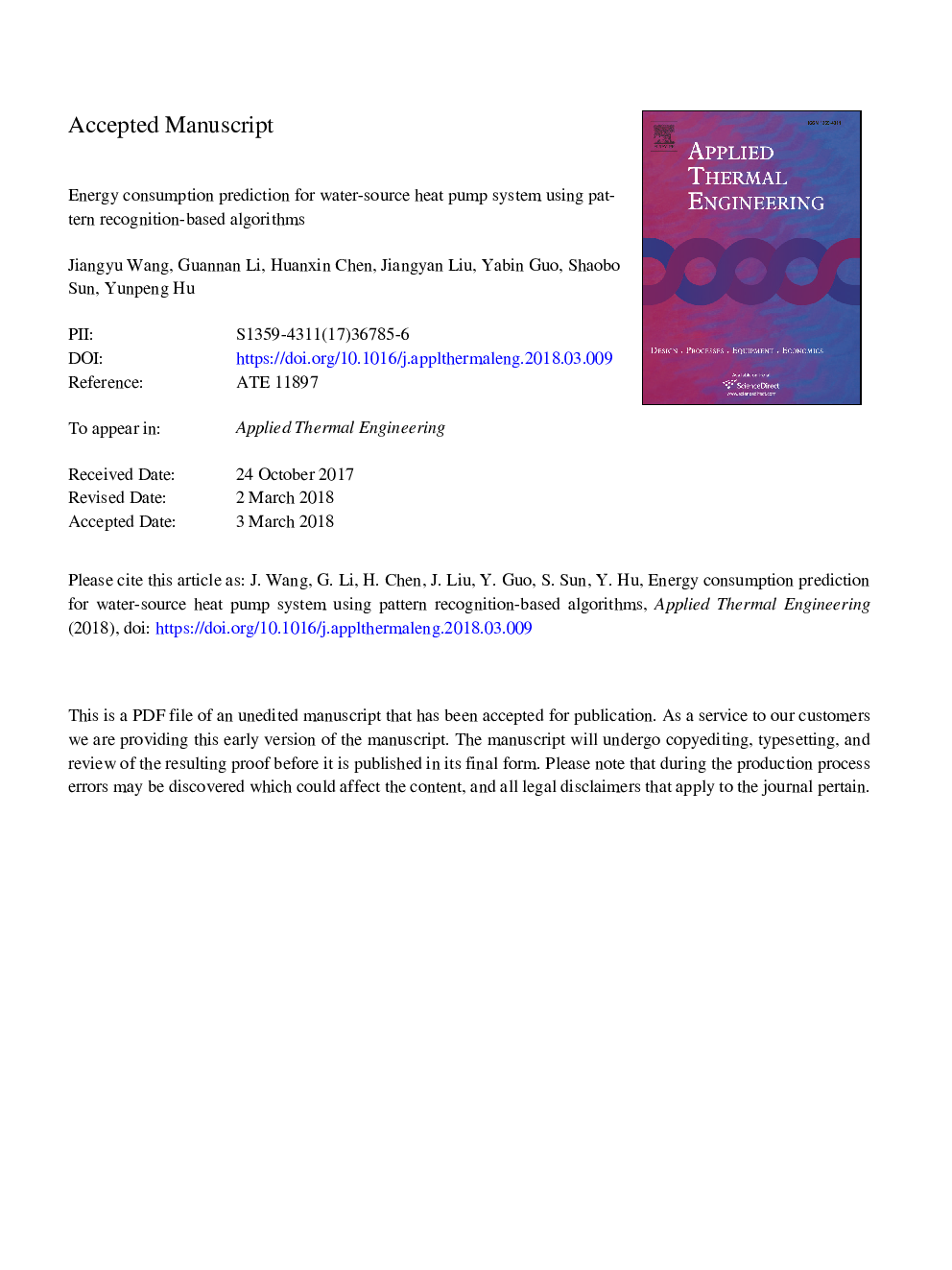| Article ID | Journal | Published Year | Pages | File Type |
|---|---|---|---|---|
| 7045664 | Applied Thermal Engineering | 2018 | 29 Pages |
Abstract
Building heating/cooling consumption prediction is of great importance for HVAC system management tasks, such as optimal operation/control strategies, demand and supply management, abnormal energy diagnosis, etc. Compared to traditional methods, data-driven methods have received a lot of attention due to their flexibility and efficiency. In particular, this paper investigates the potential of data partitioning techniques in improving prediction performance of ultra-short-term building heating load prediction. Specifically, with three proposed statistical attributes of 32â¯days considered by clustering analysis, similar daily operation patterns of pumps (OPPs) in a water-source heat pump system (WSHPS) were identified stepwise. Afterward, the sub-models based on different OPPs were developed by machine learning methods and their performance were compared to the general model without data partitioning. In additional, an operation tree was constructed to predict daily OPPs based on historical weather conditions and available date information. With the assistance of the operation tree, the proposed method can be applied in online prediction. Based on the validation, it can be concluded that the introduction of OPPs-clustering can improve the performance of building heating load prediction.
Related Topics
Physical Sciences and Engineering
Chemical Engineering
Fluid Flow and Transfer Processes
Authors
Jiangyu Wang, Guannan Li, Huanxin Chen, Jiangyan Liu, Yabin Guo, Shaobo Sun, Yunpeng Hu,
